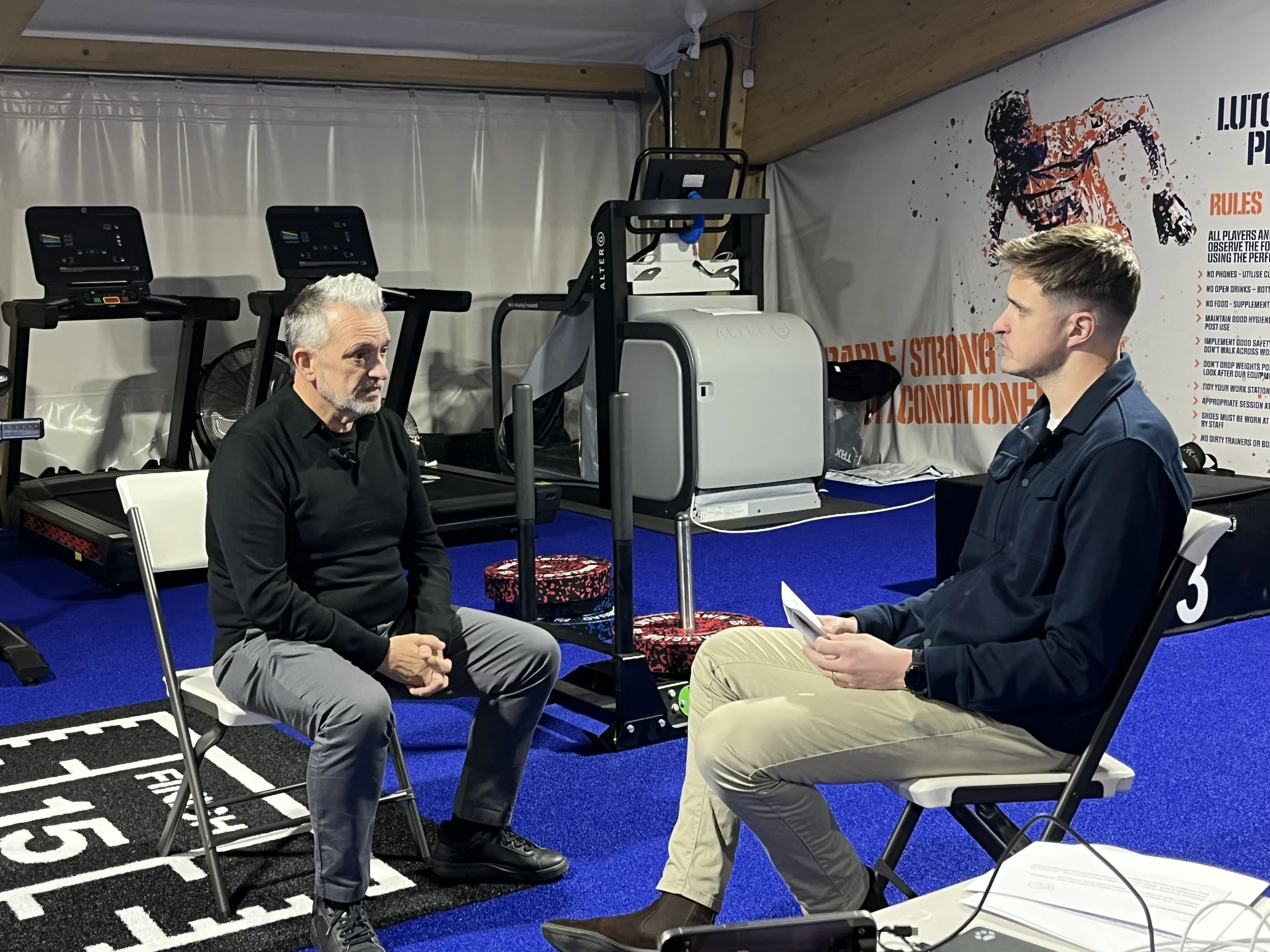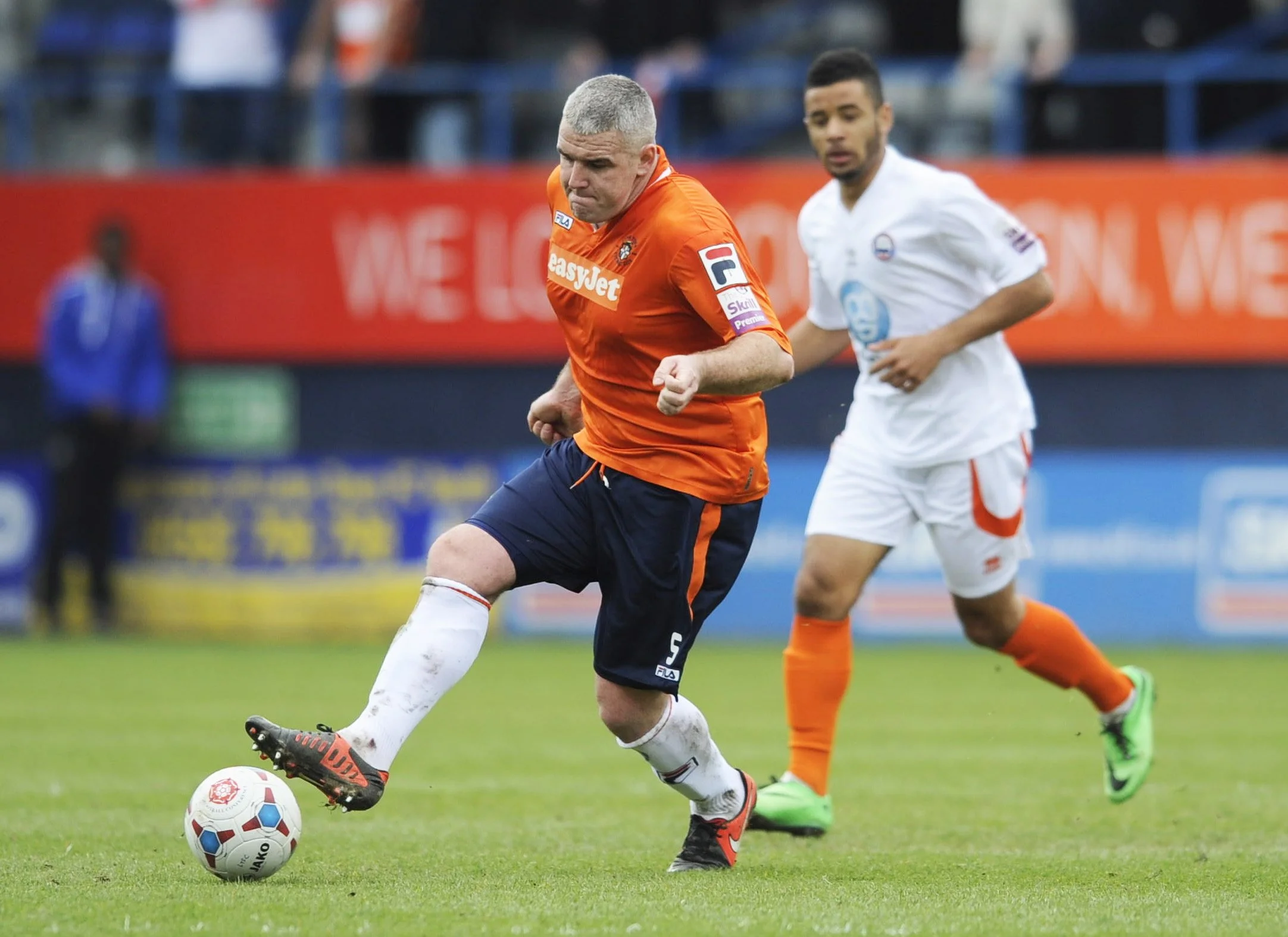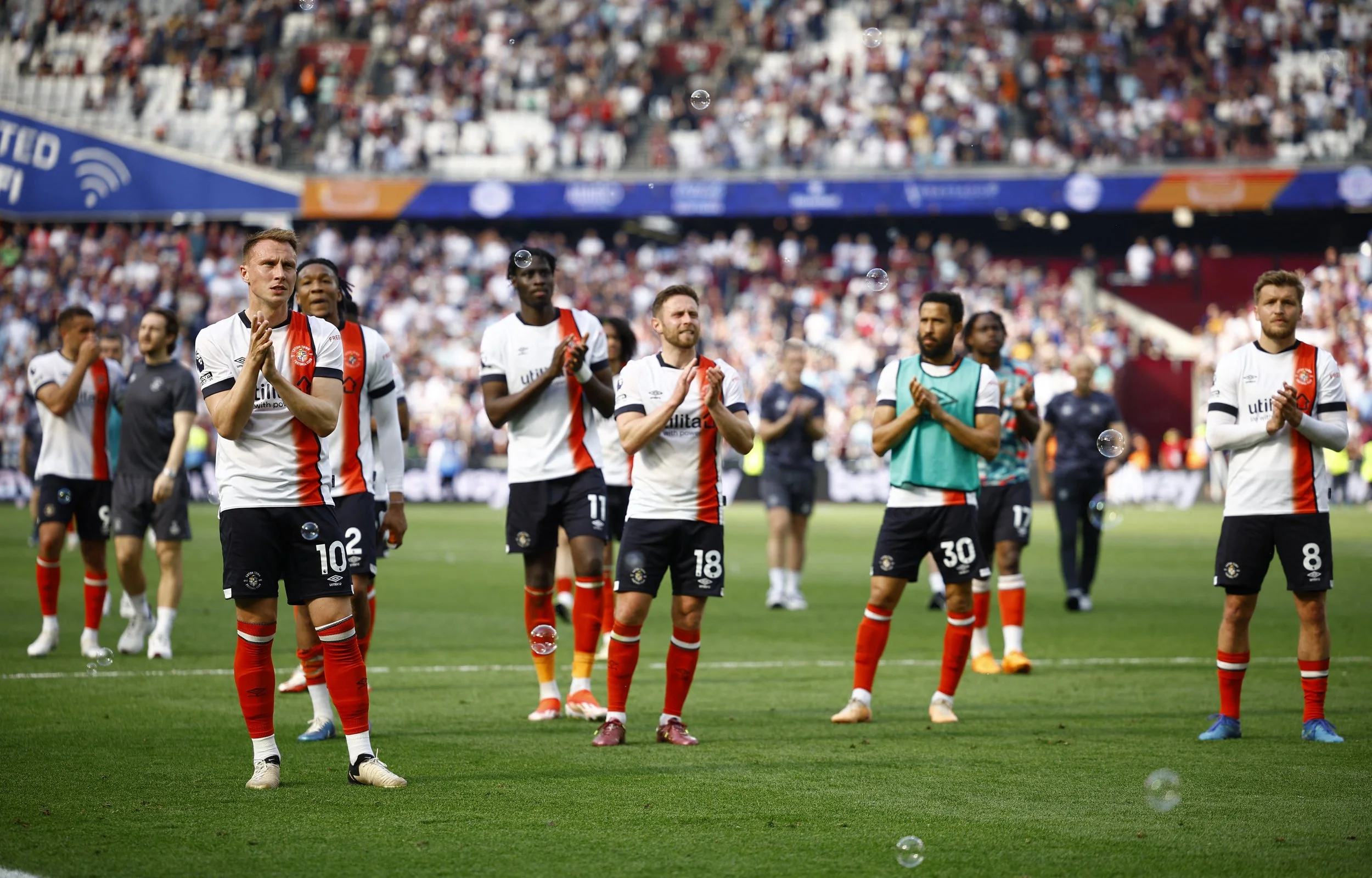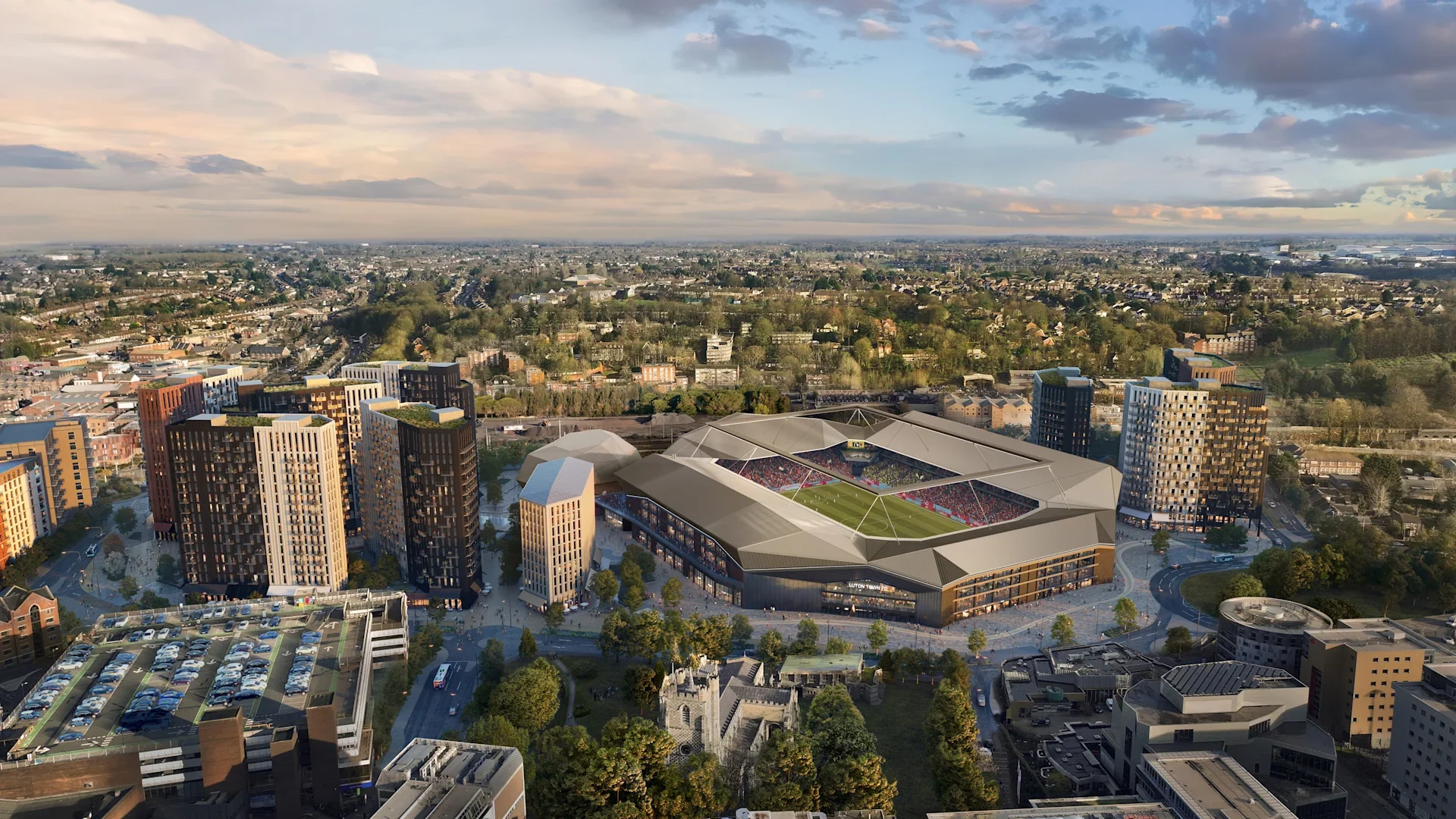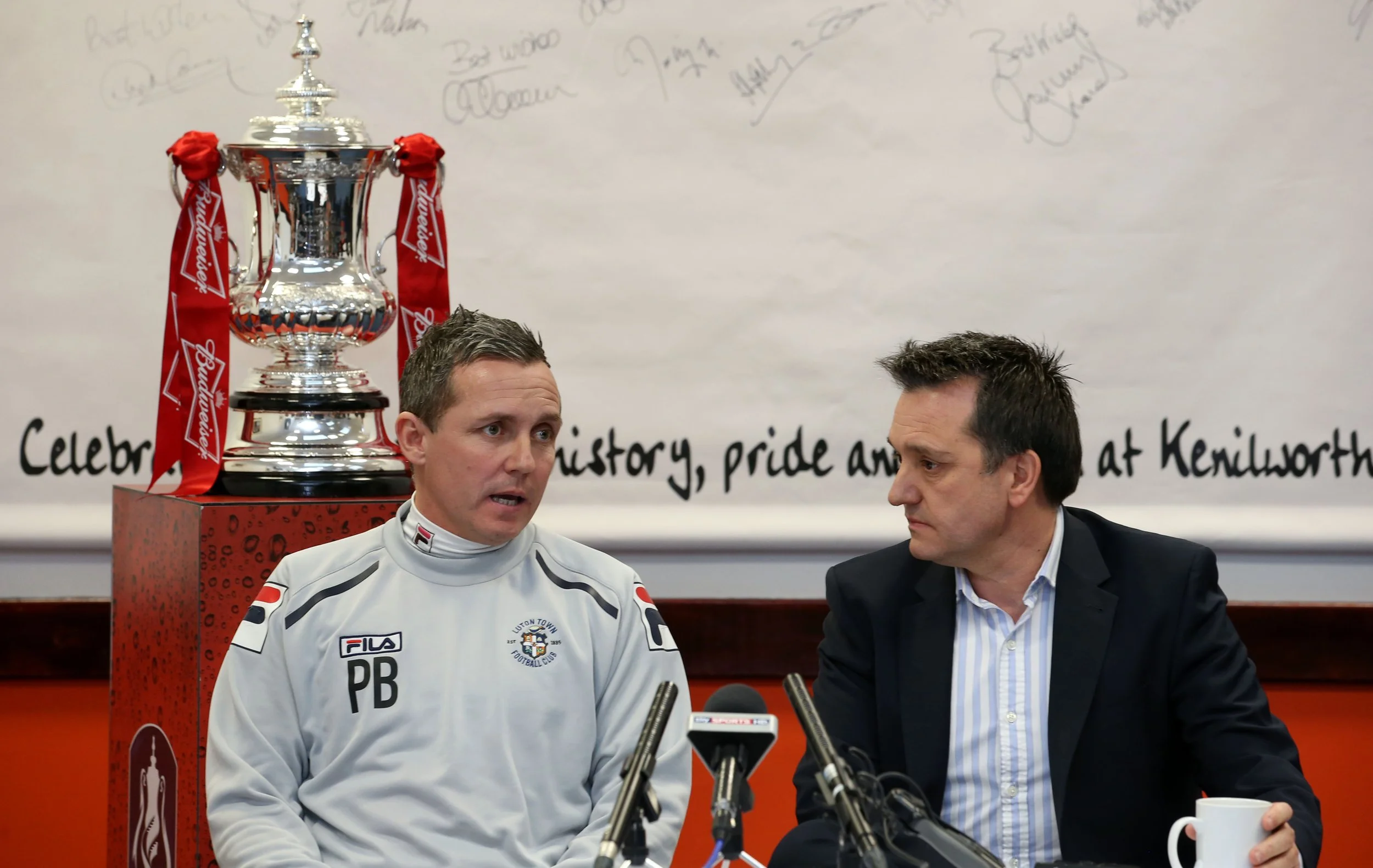ORH talks to… Luton Town CEO Gary Sweet
Oak Road Hatter’s Adam Driscoll sat down with Luton Town CEO Gary Sweet to discuss his tenure at the club, issues on the pitch over the last 18 months and the ambitious plans for Power Court.
Adam Driscoll (right) spoke to Gary Sweet at Luton Town’s fan content day on 23rd October.
You’ve been at the club for 17 years now, how would you reflect on that time?
With great pride first and foremost. Pride to be involved in this way with the club, a club that means so much to me and so many other people, it is a great honour. It’s something that I treat very very carefully, and make sure that when decisions are made for the right or wrong sometimes, that they are the right decisions.
Over the 17 years what would you say is the best piece of transfer business you’ve overseen for a player coming into the club?
There are some at the club now who we have in the building that I have great hope for. But thinking back, there are two or three that really stick out.
One that really stands out is Steve McNulty. I recall Steve McNulty just being amazing. Not just for his footballing ability, because he was an exquisite footballer, but for his character and what he brought to the team too. What we were really looking for then was someone to take on a leadership position.
Steve McNulty played 125 times for Luton between 2013 and 2015.
JJ (James Justin) is another fantastic example. He came from Luton, came all the way through our academy system and went on to have a Premier League career which he is of course still doing how. He still keeps in touch and has a great love for the club.
The past 18 months have been difficult for everybody, including yourself. You spoke in programme notes about learnings and things you may have done differently. Can you expand on those areas?
It’s something that I’ve been thinking about over the last few months to a year or so. That period of time when we got to the Premier League was a real whirlwind, because we felt for some weeks that there was a real breakthrough and we could stay up even up to a month before that relegation, compared to Burnley and Sheffield United who had a lot more time to plan and had previous experience, we did not have that experience and it was a whirlwind.
Premier League survival wasn’t to be for Luton in the 2023/24 season.
Our collective thoughts, that of the manager, coaches, board, executive team, everybody involved in recruitment, were that what we needed to do is keep hold of that squad that nearly kept us in the Premier League because they can give us another push into the league with that experience that they gained. Having since spoken to other clubs that experienced it as well, I think they got the job done and whilst I'm not necessarily saying we should have done that, we should have done more.
The challenge of keeping a squad together brings in a whole load of different issues. Issues of agents trying to pick players off, other clubs trying to pick players off whilst we’re trying to keep hold of them, players maybe wanting to leave but offers actually being quite disrespectful, it was quite a big issue in the end that caused problems around harmony.
Let’s go back to the January of our Premier League campaign. I think there is a consensus among our fanbase, perhaps even still now, that perhaps we weren’t ambitious or confident enough to stay in the Premier League. Is that an area that you look back on and think we could or should have done more?
It’s been a thought, but it’s very very easy to look back in hindsight and say we should have done something differently. What we have done, year one in the Premier League and even year two with the parachute payments, is secured a really ambitious new football stadium for this football club.
Our ambition is long-term. My job is to look at the lens of this business from not just a Saturday-to-Saturday or season-to-season basis, but for a real long term process, as is the board. So collectively we decided was that what was most important for us during our journey through the Premier League is to make sure of, or at least secure its ambitious growth.
Artists impression for Power Court. Credit: Luton Town FC/Limak Construction
The decision to go 25,000 seats has saved us not only an awful lot of disruption during the season, where we would have been going from 17,000 to 23,000 to 25,000, but also a huge amount of money. It’s saved us over £40 million. Our fanbase is there. Our research says that 25,000 is about ideal for the size of the town.
So that was the decision that was made, but also I would say that a lot of examples of football clubs in the January window in the Premier League find it really tough. You never really get value in the January window, it doesn’t matter how much you spend, you don’t really get the value. Most of the teams that have spent money haven’t necessarily found success. January is a very difficult time to change your transfer plans.
We always want to be a sustainable football club and we are. We always want to maintain that it is Luton people running this club, the custodians of this club are from this town, this community and what we’re doing is keeping this sustainable for the long term and growing that long-term vision through Power Court.
Is there any concern that if we’re not playing football higher than League One, that it is going to be a challenge to fill 25,000 seats at Power Court, and if there is a challenge in filling it, what sort of initiatives does the club have in place to max it out as much as possible?
I actually can’t wait for the challenge of having empty seats. We haven't had empty seats for a long time, for a large number of years and we really want that challenge and want to be able to grow our fanbase. It’s really hard to grow your fanbase when you have a stadium the size of Kenilworth Road.
Having a stadium the size of Kenilworth Road puts us right at the bottom of the pyramid when you look at capacities. Power Court puts us in about the third quarter of the Championship. I know one or two have said ‘It’s too big for us’, but other people have said ‘It’s not enough’. I think both are right in some ways, but our ambition is greater than being in the third quarter of the Championship.
We want to be higher than that. So actually 25,000 seats is the right number for us, it’s the right business model because of the amount of money we are saving by avoiding longer term disruption. It gives us the opportunity to actually grow our fanbase and we've done an awful lot of research to know that that fanbase is there, not just in those that exist, but also how we can grow our fanbase.
You have said that around 50% of your time is spent on Power Court and the other 50% on footballing operations. Fans have suggested that we need someone who will oversee 100% of footballing operations. Is that something as a board that you see that we don’t need in the long-term or is that a short-term decision?
The model of a sporting director or a director of football isn’t something that guarantees success. In fact most of the sides outside of the top half of the Premier League where directors of football are coming in would show that there is no success from it. Just because somebody has got that responsibility, it doesn’t mean that it will be successful.
Paul Buckle (left) and Gary Sweet ahead of Luton's FA Cup Fifth Round match with Millwall in February 2013.
One thing that I do get involved in is the process is the common problems and the protocols and processes to make sure things are done in the right way. I get involved in some of the budgeting and negating because actually it should be the chief executives role to get involved in the big decisions.
So from that point of view, even if we had a director of football, where you give directors of football responsibilities in other football clubs is where those clubs lose in our opinion. There are examples of clubs in this league that have relaxed that position where they used to have it and have decided that they don’t actually need it.
At these levels I don’t think there is a need for it and the most important relationship is the one between the chief executive and the manager and the harmony we have is fantastic and Jack (Wilshere) is an incredibly engaging guy. We also don’t want to have a head coach, we want to have a manager who can oversee the whole facility. I think it’s really difficult when you have a sporting director because the manager just focuses on being a coach and the squad and team, and then you have the academy and sports science and medical being effectively overseen by a sporting director. We want the manager to oversee the whole process and Jack has the ability to do that.
Luton’s appointment of Jack Wilshere has brought positivity back to the club. Photo Credit: Luton Town
We also have an executive team, an operations director, chief revenue officer and people involved in the recruitment. We have a chief finance officer and a HR director so there is an executive team there to look after the other components of the business, but also to oversee the operational function of this environment. So there is nothing we miss at all, but I get the frustration from people because they see the different models elsewhere.
We also want to be quite lean. When we got to the Premier League, in terms of staff we were half the size of the lowest in terms of staff numbers, but we want to keep the people who work passionately and be really involved with every aspect of the business and the club and I think we have got that.
Something that supporters feel we have lost is that togetherness. What can you say to the supporters that feel disconnected or disillusioned with the club that they love to try and bring everybody back together?
One of the things is trying to understand the running of a business and everybody involved in their relative aspects of that. When we aren’t playing well or getting results there are moments when I get frustrated, I get upset and I even get a bit angry sometimes. People think it hurts them because we don’t perform at times, but it hurts me too. On Mondays they go to their work and I go to my work and I am still involved in it so it really does hurt us just as much.
All of us want absolutely desperately to win this season and we are working every single hour of the day to make sure it does. Please have faith that we are going to do this. We are absolutely going to do this. It is going to turn. What we need to do is bring love back for the football, allow players to love training and coming into the gym and using these facilities.
Jack is going to help us do that with his great team of staff. If the players can show a little bit of that love, I hope the supporters can show them that love too. That is how we turn it around and it’s not far away. This football club doesn’t really change. We are and should be proud of our sustainable football club that is owned by shareholders and custodians that love the club and come from the community. We are going in the right direction and it is great as long as we are sustainable and that is what we are trying to achieve.
This interview was part of Luton Town’s fan content day. Watch our interview with Luton manager Jack Wilshere below.

